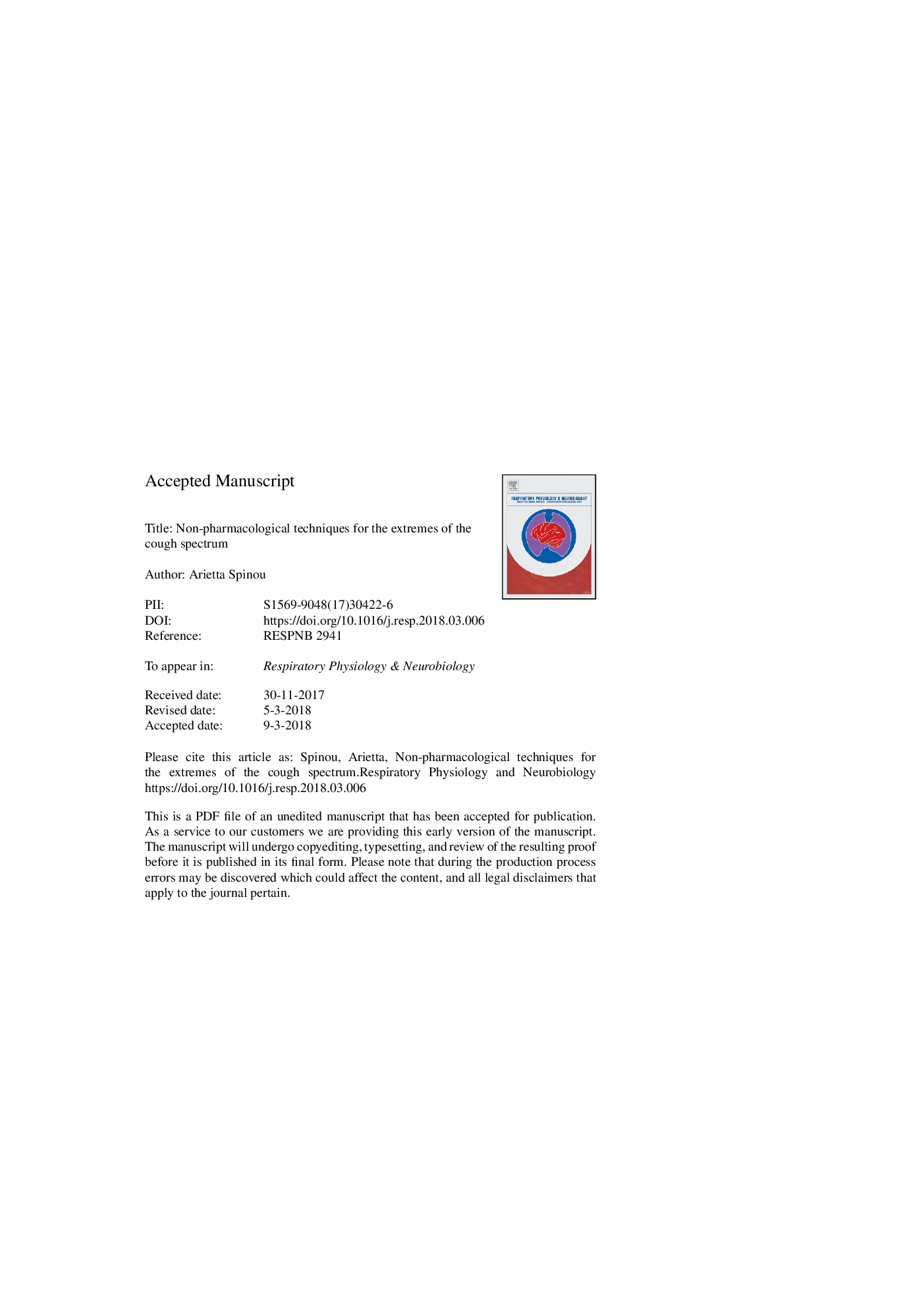| Article ID | Journal | Published Year | Pages | File Type |
|---|---|---|---|---|
| 11019090 | Respiratory Physiology & Neurobiology | 2018 | 33 Pages |
Abstract
Cough can be viewed as a continuum where extremes represent disease phenotypes. Under this unified concept, non-pharmacological treatment for the extremes of the cough spectrum includes both cough augmentation and cough control techniques. Supporting the cough motor output and exercising the cognitive control on coughing are the main directions of these techniques. Cough augmentation can be provided to patients who present low ability to generate adequate peak cough flows, with the aim to develop the sheering forces that are essential for effective airway clearance. On the other hand, individuals with high cough sensitivity or frequency can practice techniques for cough control, which incorporates a combination of education, retraining and psychological support. These techniques aim to empower patients to increase their supramedulary control on cough. Although hypotheses that are generated by the physiology of cough can support most non-pharmacological techniques, their exact mechanisms of effectiveness remain unclear.
Related Topics
Life Sciences
Biochemistry, Genetics and Molecular Biology
Physiology
Authors
Arietta Spinou,
